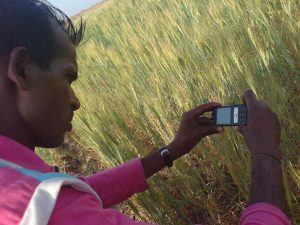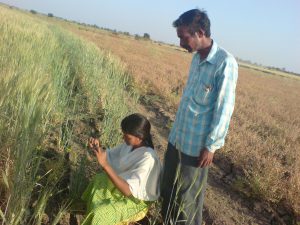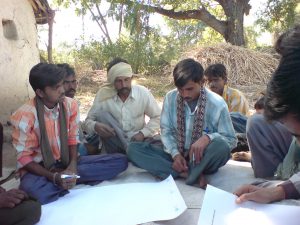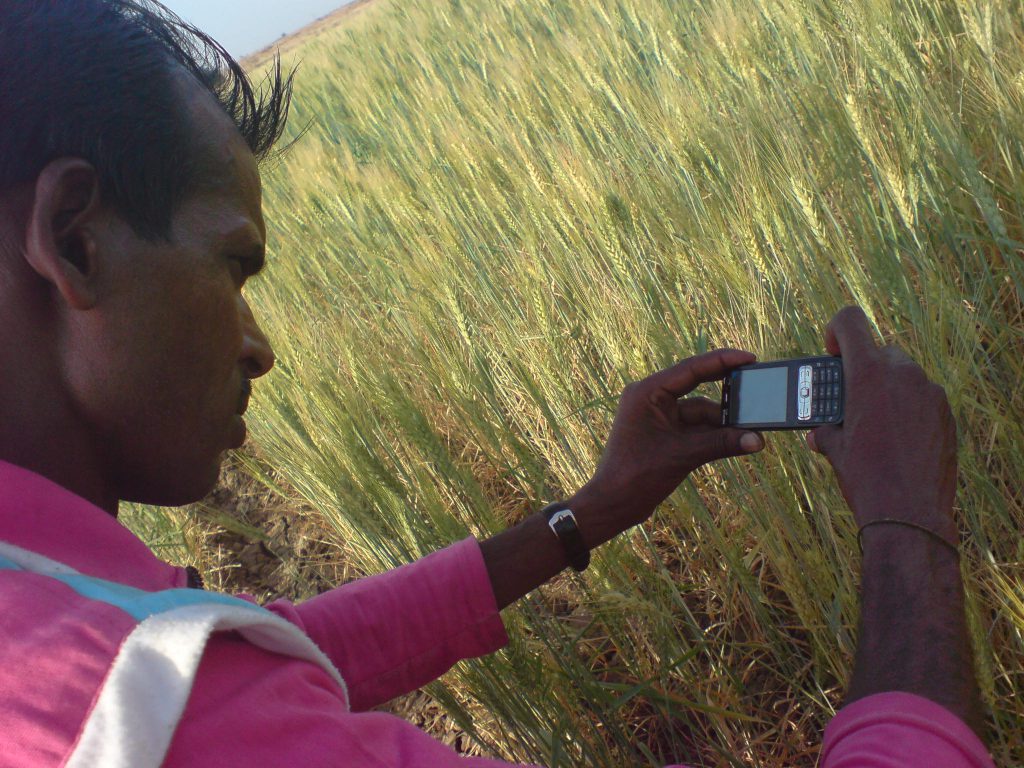 I’m stuck on a question…
I’m stuck on a question…
These days, perhaps the quickest way to an answer is to pull out my mobile phone.
We all take for granted the almost limitless knowledge we can access at the swipe of a screen – something that would have been unimaginable a decade or so ago.
For a group of farmers in India, the technology in their pocket can connect them to locally-relevant, accurate and timely advice to avoid critical threats to their crops and livelihoods.
And the design methods used to develop the system have gone on to have an even greater impact after being used to create IT systems for some of the poorest members of Indian society to access microfinancing and banking services.
 The technology has been developed as part of the Rural e-Services project led by Professor Andy Dearden, Professor of Interactive Systems Design, from Sheffield Hallam University’s Cultural Communication and Computing Research Institute (C3RI), and working with a farming co-operative in Madhya Pradesh, India.
The technology has been developed as part of the Rural e-Services project led by Professor Andy Dearden, Professor of Interactive Systems Design, from Sheffield Hallam University’s Cultural Communication and Computing Research Institute (C3RI), and working with a farming co-operative in Madhya Pradesh, India.
Prof Dearden and the farmers, collaborated with Safal Solutions, a small Indian software development company, as well as researchers from the University of Oxford and UWE Bristol. They developed new ways of working with the farmers to design software matched to their experience, the co-op’s capacities and the farmers’ priorities. In this case providing on-the-spot agricultural advice via a mobile phone.
 The result was Kheti – a mobile phone system which allows co-op members – many of whom have limited literacy – to create multimedia messages incorporating images and audio and send them to a web portal that can be accessed later by the agricultural advisor for their co-operative.
The result was Kheti – a mobile phone system which allows co-op members – many of whom have limited literacy – to create multimedia messages incorporating images and audio and send them to a web portal that can be accessed later by the agricultural advisor for their co-operative.
The farmers themselves helped to co-design Kheti so it was usable by them, and it stood up to the challenges of connectivity in remote villages. Prior to Kheti, agricultural advisors would have needed to visit in person to support the farmers and provide answers – which could involve long journeys over dirt roads, so that farmers might meet the advisor only once or twice a year. But farmers who used photographs and audio to communicate the problems through the new mobile phone system would typically experience a turnaround time from query to response of between 12 and 48 hours.
In field trials, more than 200 messages were exchanged in three months, with over 100 different farmers using the service to get answers to pressing agricultural issues – such as identifying and eradicating crop pests, poor crop development, and crop disease symptoms.
Since then, the software design approach has been adapted by Safal Solutions to build systems for institutions connected to microfinance and primary agricultural co-operatives. For example, to allow the Centre for People’s Forestry and their partners to provide agricultural information, advice and business credit lines to over 10,000 people in Andhra Pradesh in India. Their design approach has also helped microfinance Non-Governmental Organisations (NGOs) enable some of the poorest members of Indian society to access banking services, reaching over one million women and 300,000 families.
The findings of the Rural e-Services study are also having an impact outside India. Prof Dearden collaborated with the research division of SAP – Europe’s largest software company – on co-design approaches for new mobile phone software allowing co-operatives of cashew nut famers and shea nut collectors in Ghana and Burkina Faso to trace their produce from farmer to customer. The software has enabled the co-operatives to qualify for Fairtrade premiums, increasing the incomes of over 8,000 farmers in West Africa. SAP have gone on to develop the software as a commercial product and the platform is now being used by Barry Callebaut, the world’s leading manufacturer of high quality chocolate and cocoa products, to support traceability and sustainability with 65,000 small scale cocoa farmers in Cote D’Ivoire.
As Kheti and the Rural e-Services study reveal, advances in technology can provide answers to our questions, even the remotest ones.
The Rural e-Services project was featured in University Alliance’s Spotlight Report UK Research and Innovation Overseas: A snapshot of University Alliance activity in developing countries. The report provides an overview of Alliance institutions’ activity in developing countries and focused on tackling global challenges.




